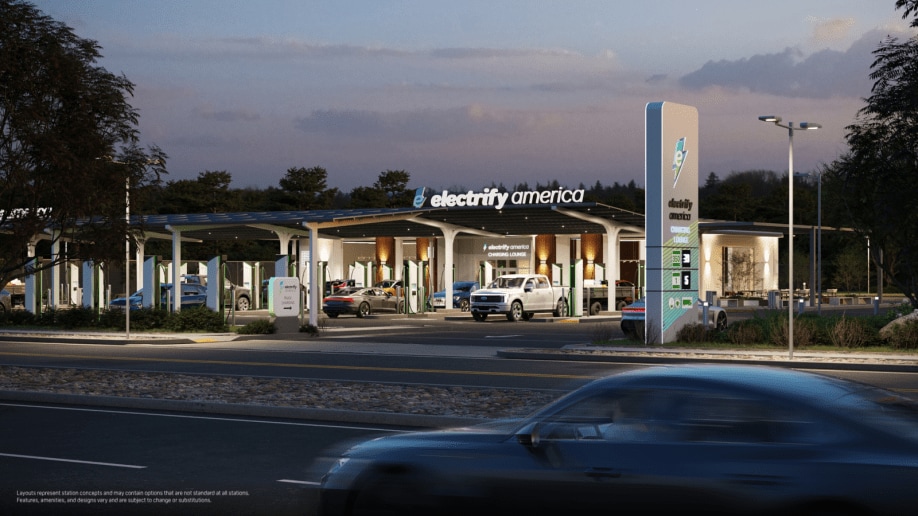
In an email to customers, Electrify America explains, “We’ve tried hard to maintain our current pricing, but rising operational and energy costs have now made adjusting our pricing necessary.”
EV Charging Stations: Everything You Need to Know
Increases for Subscribers, Non-Subscribers
Electrify America charges one rate for people who subscribe to its Pass+ plan for a $4 monthly fee. Non-subscribers and those who sign up for the Pass plan (which has no monthly fee) pay a higher rate.
The changes kick in March 6. Pass+ Subscribers will pay $0.36 per kilowatt-hour (kWh) instead of today’s $0.31. Non-subscribers and Pass members will pay $0.48 instead of $0.43.
Electrify America raising prices in March. pic.twitter.com/0zEQFui6bO
— Phillip.png ⚡🐢 (@pmsyyz) February 3, 2023
The smallest EV battery you can buy in 2023 — found in the Mazda MX-30 — holds 35.5 kWh. The largest is probably the one found in the GMC Hummer EV. General Motors hasn’t announced its capacity, but industry rumors say it’s slightly over 200 kWh. But we should note most EVs won’t let you charge their batteries to 100% capacity.
Some states require the company to charge by the minute instead. There, Electrify America says, guests and Pass members will pay 0.19 per minute for sessions with peak charging speeds up to 90kW, up from $0.16. Pass+ members will pay $0.15 instead of $0.12.
Fast chargers capable of up to 350 kW will go from $0.32 to $0.36 for guests and Pass members and from $0.24 to $0.29 per minute for Pass+ members.
Will Likely Fund Expansion
Electrify America promises to “continue to maintain simple, uniform pricing across the country” but says the price increases will help it “uphold our commitment to drive electric vehicle (EV) adoption and the future of electric mobility.”
Translation: the added fees will be used to expand the network and improve its reliability. A recent study found that America needs to add at least 1,000 more fast chargers along highway routes to make coast-to-coast electric driving convenient. Another recent study showed that America’s charging networks are frustratingly unreliable, with almost 21% of charging attempts failing (though the study didn’t single out any particular provider).
Electrify America operates the country’s second-largest charging network, behind only Tesla’s Supercharger system. Tesla’s, however, is a walled garden open only to Tesla owners, though the company reportedly plans to make part of it available to owners of other brands’ cars by the end of 2024.







